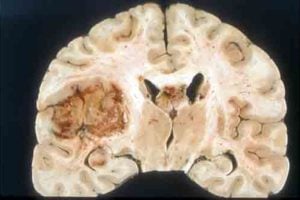radiation oncology
Nature Reviews Cancer article traces possible role of damaged DNA in tumor development
Atlanta – DNA provides the instruction manual for all life forms. Occasionally, instructions are not carried out properly, and bad messages are sent leading to the creation of mutant proteins and possible tumor development.
Paul Doetsch…
ASTRO publishes palliative radiotherapy for bone metastases guideline
The American Society for Radiation Oncology (ASTRO) Clinical Affairs and Quality Committee has developed a guideline for the use of radiation therapy in treating bone metastases. The guideline will be published in the International Journal of Radiat…
Protein related to aging holds breast cancer clues
The most common type of breast cancer in older women — estrogen and progesterone receptor (ER/PR) positive breast cancer — has been linked to a protein that fends off aging-related cellular damage.
A new study led by Vanderbilt-Ingram Cancer…
HIV-positive head and neck cancer patients benefit from radiation therapy
Fairfax, Va., January 18, 2011 — HIV-positive head and neck cancer patients respond well to radiation therapy treatments and experience similar toxicity rates as non-HIV-positive patients, despite prior reports to the contrary, according to a stud…
Loss of gene promotes brain-tumor development, reduces survival, study finds
COLUMBUS, Ohio — New research shows that loss of a gene called NFKBIA promotes the growth of glioblastoma multiforme, the most common and deadly form of brain cancer, and suggests that therapies that stabilize this gene may improve survival for c…
Non-invasive SRT as good as surgery for elderly patients with early lung cancer
A new study shows that a new type of targeted radiation therapy called stereotactic radiation therapy is just as good as surgery for patients aged 75 and older with early-stage lung cancer, according to research presented at the 2010 Chicago Multidi…
Breast cancer survivors often rate post-treatment breast appearance only ‘fair’
SAN DIEGO — A third of breast cancer survivors who received the breast-conserving treatments lumpectomy and radiation rate the appearance of their post-treatment breast as only “fair” or “poor” in comparison to their untreated breast, according to …
Stereotactic radiotherapy slows pancreatic cancer progression for inoperable patients
DETROIT — For pancreatic cancer patients unable to undergo surgery — the only known cure for this form of cancer — a highly targeted cancer radiation therapy may help slow cancer progression and lessen disease symptoms, according to researcher…
Targeted radiation therapy minimizes GI side effects for prostate cancer patients, Penn study shows
SAN DIEGO — Prostate cancer patients who receive intensity modulated radiation therapy (IMRT) are less apt to suffer serious gastrointestinal complications following their treatment than those who receive three-dimensional conformal radiotherapy …
Practice-changing studies on how oncologists treat cancer to be presented at ASTRO Annual Meeting
The following are highlights of new cancer research being released at the American Society for Radiation Oncology’s (ASTRO) 52nd Annual Meeting to be held October 31 through November 4, 2010, in San Diego.
For full copies of the abstracts and pres…
Novel target for existing drug may improve success of radiation therapy
Scientists at Washington University School of Medicine in St. Louis have discovered a new drug target that could improve the effectiveness of radiation for hard-to-treat cancers.
The finding, published in the Journal of the National Cancer Institu…

